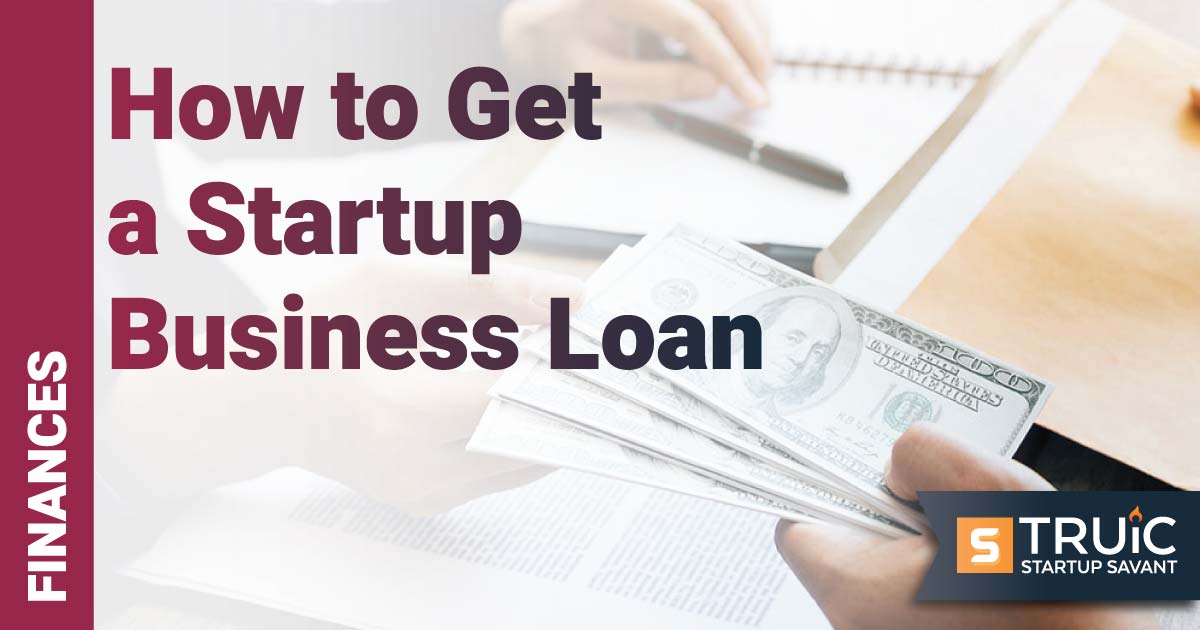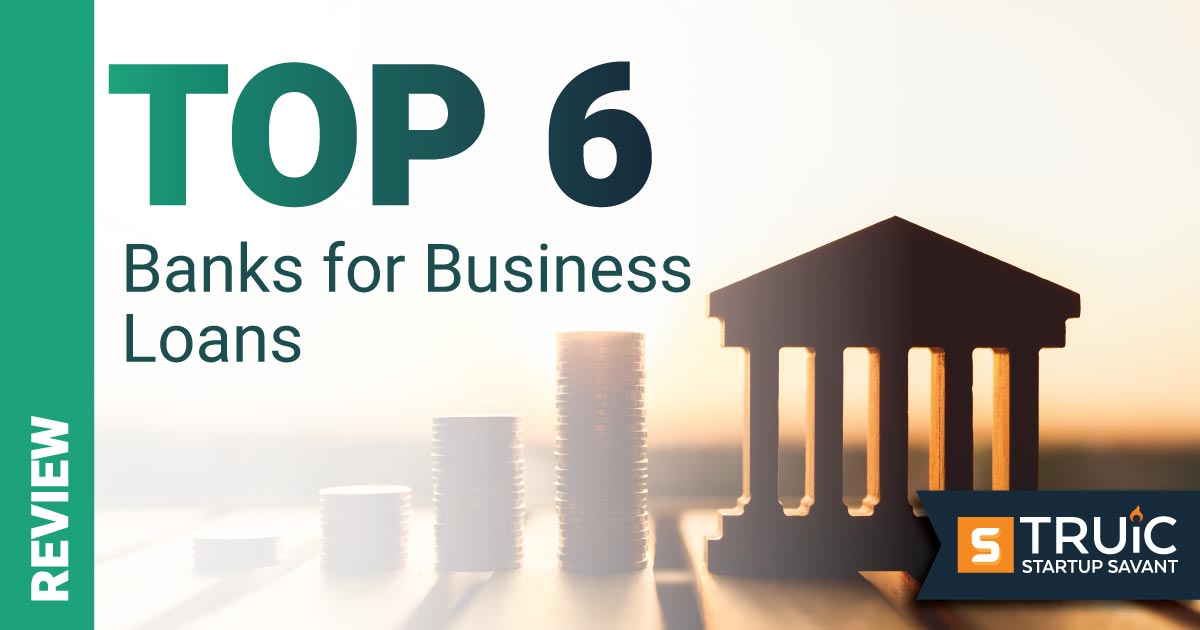How to Get a Startup Business Loan With Bad Credit

Last Updated: By TRUiC Team
Securing funds for your startup with bad credit can feel impossible at first, but it's not an impossible task. Believe it or not, there are a variety of alternatives to traditional bank loans that are available to you, catering specifically to businesses with less-than-perfect credit histories.
In this guide, we'll explain how to get a business loan with bad credit as well as the best business loans for small business owners and startup founders with bad credit.
Can You Get a Business Loan With Bad Credit?
Getting a business loan often seems like a tall order when an entrepreneur has bad credit, but the reality is that while bad credit can make obtaining a business loan more challenging, it is still possible. Modern financial markets offer a range of alternatives for startups and companies with less-than-ideal credit.
Online lenders, Community Development Financial Institutions (CDFIs), and microlenders are just some of the options in the business space that are providing loans to businesses that traditional financial institutions may shy away from.
These alternatives focus on aspects beyond just credit score such as the company's time in business or annual revenue. Still, it's important to bear in mind that interest rates might be higher and repayment terms could be shorter due to the increased risk perceived by the lender.
Understanding the Impact of Bad Credit
Lower credit scores signify that you've had some challenges maintaining the financial discipline lenders desire to see and imply a higher risk for the lender. Due to this, securing traditional business loans becomes more difficult.
Here are some of the more direct impacts:
- Bad credit can significantly reduce the number of lending options available to you. Reputable lenders might shy away from providing funds to businesses with bad credit due to increased default risk.
- On occasion when a traditional business loan is offered to those with bad credit, it often comes with high interest rates and more stringent terms. These terms might include increased collateral requirements and shorter repayment periods.
- It's also important to note that bad credit can affect the maximum amount of loan provided. Lenders may offer a significantly lower amount than requested due to uncertainty about repayment ability.
Even if your credit score is subpar you're not completely out of luck, though. There are alternative financing options available and proactive measures you can take to boost your credit scores over time.
How to Improve Your Business Credit Score
Start by making a solid commitment to pay your bills on time since this can significantly influence your credit score. Punctual and timely payments show lenders you're responsible and can be trusted with repayments. Consider also reducing your debt. High balances can decrease your credit score so try to keep your credit utilization under 30%.
As a business owner, you must understand the significance of having a comprehensive business plan backed by credible financial projections. This not only helps you map your business growth but also becomes a necessary document when applying for loans. A financial projection that demonstrates stable profitability convinces lenders of your capacity to repay, which could sway the odds in your favor even with a bad credit history.
It’s necessary to build your business credit separately from your personal credit score. Business credit scores consider different factors and are reported through separate agencies like Dun & Bradstreet. This allows you to keep business finances separate from personal assets and a good business credit score can make it easier for you to get loans, especially if you're just starting your business.
Best Bad Credit Business Loans for Startups
In startup financing, the possibilities aren't always clear-cut, especially when it comes to bad credit. Several alternatives do exist though, each with unique features that could help a business overcome credit challenges. Let's look at some top bad credit business loan options for startups.
Small Business Administration (SBA)
The SBA might be the “knight in shining armor” for entrepreneurs with bad credit. While the SBA doesn't directly lend , the organization collaborates with private lenders and guarantees portions of each small business loan to reduce lender risk. This makes it easier even for businesses with poor credit to access funds. Key programs include 7(a) loans, 504 loans, and microloans. Though SBA loans offer favorable terms and capped interest rates they have stringent eligibility rules and an intensive application process.
OnDeck
For speed and flexibility, OnDeck is a worthy contender in the business loan industry. As an online lender, it breaks down barriers to funding with a quick and streamlined application process. Their product offerings include working capital loans and lines of credit that can be funded sometimes within the same day. OnDeck is ideal for established businesses that have been operating for at least a year with a minimum of $100,000 in annual revenue. To be eligible for business loans through OnDeck, you must have a minimum credit score of 650.
Fundbox
Fundbox is another online lender that stands out with its quick decision times, fast fund disbursal, and minimum credit score requirement of only 600. It offers working capital loans and lines of credit with flexible repayment terms and even gives clients extra days to repay without added costs. Through a partnership with Stripe, businesses can access Fundbox lines of credit directly from their dashboard. This could be perfect for businesses already using Stripe but may not be as viable for brand-new startups due to the requirement of consistent revenue.
Kiva
In contrast to traditional lenders, Kiva is a nonprofit that uses crowdfunding to offer 0% interest loans. No matter what your credit score may be, Kiva focuses on character and potential, making loans available to those overlooked by banks. This isn't an instantaneous funding solution though – once approved the loan goes public for 30 days to attract lenders. This waiting period can be a downside, but the absence of interest makes up for it to a great extent.
Recommended: Read our review of the best startup business loans with no credit check required.
How to Get a Business Loan With Bad Credit
Having bad credit does not necessarily mean that your startup dreams are over. There are several strategies that you can use to secure much-needed funding; let’s look at some of the options.
- Target lenders that work with bad credit borrowers. As mentioned previously, specific lenders can be more inclined to offer a bad credit loan. These lenders can offer a variety of different types of small business loans - from lines of credit and equipment financing to merchant cash advances. As always though, be cautious of higher rates, especially with merchant cash advances from online lenders.
- Prepare effectively before applying for a loan. Organize essential documents like a comprehensive business plan, cash flow projections, and detailed financial statements. If you have collateral to offer that can also be a major plus.
- Add a co-signer with good credit. Don’t forget that adding a co-signer with good credit can significantly boost the chances of approval for your loan application. This adds an extra level of assurance for the lender and might help you secure better loan terms.
Alternative Financing Options for Startups
While it's true that a good credit score can make acquiring business loans more manageable there are still a good number of routes to explore for businesses with bad credit. Some business loan alternatives for startups include friends and family, crowdfunding, grants, angel investors, and venture capital.
Friends and Family
Raising funds from friends and family is an informal yet common way to generate funds when starting a business. It's practical because these individuals already know you and your potential which makes them more inclined to offer financial support. Even with familiar faces, however, it’s important to put formal agreements in place to maintain relationships and safeguard their investments.
Crowdfunding
Crowdfunding platforms such as Kickstarter or GoFundMe present a viable option for raising capital. By creating a compelling campaign that outlines your innovative idea you can attract a multitude of smaller investors. This route not only provides funds without the need for good credit but also validates your business idea based on the public's response.
Business Credit Cards
Business credit cards can increase cash flow and serve as a revolving funding source as you repay the amount spent. While many corporate credit cards require a high credit score, there are several business credit cards for bad credit available to small businesses and startups.
Grants
Grants are an excellent source of funding because unlike business loans they don't require repayment. They can come from various sources such as government agencies, nonprofit organizations, or corporations. But keep in mind that grants often come with stipulations on how the money can be used and are also highly competitive.
Angel Investors
Angel investors are individuals who provide capital to startups in exchange for equity or convertible debt. They take risks betting on new ideas and entrepreneurs with the hope of significant future returns. This requires a robust business plan and a clear roadmap for your company's growth to appeal to these potential private investors.
Venture Capital
Venture capital firms invest large sums into promising companies with high growth potential usually in exchange for equity. While this option often brings about sizable cash injections, don’t forget that it will likely come with high expectations and a loss of control over certain business decisions.
Frequently Asked Questions
Can I get a business loan if I have bad credit?
There are business loans available to entrepreneurs with bad credit. However, bad credit business loans may require lofty repayment terms, high interest rates, or stringent eligibility requirements based on time in business and revenue.
What is the minimum credit score for a business loan?
The minimum credit score to qualify for a business loan will vary by lender and loan. Many banks and credit unions require a minimum credit score of 670, however, there are business loan options available for business owners with lower credit scores.
Can I get a business loan with no revenue?
While revenue and credit scores are common qualifiers for business loans, there are business loans available for entrepreneurs with no revenue, especially startups in the early stages.


